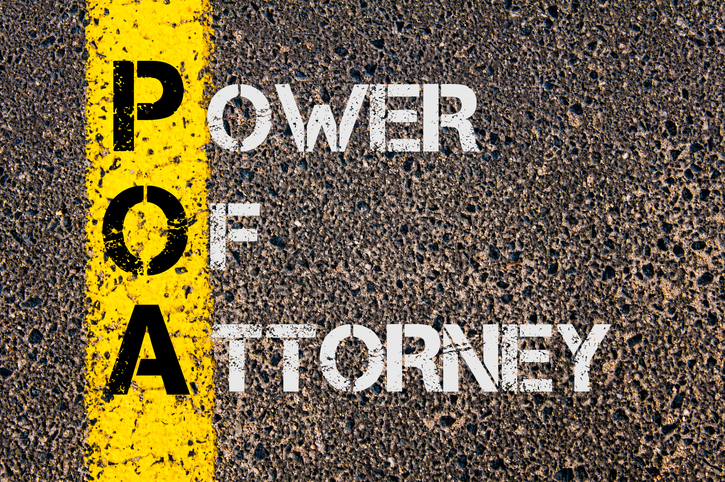A financial power of attorney can be a game changer if you find yourself in a situation where you need someone to have control of your finances because you can’t make decisions for yourself. It’s also valuable to help you take care of your loved ones if they find themselves in a similar situation. You can gain access to paying their bills, managing investments and even selling their real estate.
Below we’ll cover the ins and outs of getting a power of attorney in Arizona, but if you need more estate planning help, consider talking to a financial advisor.
Understanding a Financial Power of Attorney
A financial power of attorney is a critical legal document that plays a significant role in financial planning. Essentially, it is a document that grants a trusted individual, known as the agent, the authority to handle financial affairs on behalf of the person creating the document, known as the principal. This can cover a wide range of responsibilities, such as paying bills, managing investments and selling property.
There are many reasons you may need a financial power of attorney, or that you may need to give one. The obvious scenario is having a power of attorney for a loved one who can’t make decisions for themselves. But, you may also find one useful if you have to move for an extended period to work and you need someone to manage your finances at home while you’re away.
A financial power of attorney is a legal instrument used in financial planning. It empowers a designated individual, called an agent or attorney-in-fact, with the authority to oversee the financial affairs of the principal (the person who initiates the power of attorney) when they are unable to do so themselves. In Arizona, this can include the management of real estate, bank accounts and other assets.
How to Get a Power of Attorney in Arizona

To obtain a financial power of attorney in Arizona, the principal must complete a power of attorney document, sign it in the presence of a notary public and have it officially notarized. But why is each step necessary? The process is designed to protect the principal, ensuring that they are making a conscious, informed decision about who handles their finances if they are unable to do so.
As noted above, according to the Arizona Revised Statutes § 14-5501, the principal must sign the POA in the presence of a notary public. This is a legally binding process that authenticates the document and confirms the principal’s willingness to grant the powers outlined in the POA to the agent.
In Arizona, there are several key steps involved in obtaining a POA. These include:
- The principal selects a trustworthy agent.
- The agent fills out an Arizona Power of Attorney form specifying their powers and the scope of their authority.
- The form is signed by the principal in the presence of a notary public.
- If the principal is incapacitated, a guardian or conservator is named in the document.
- The POA document is recorded with the county recorder’s office, especially if it will be used in property transactions.
Once the terms that trigger the activation of the power of attorney occur, it is officially enacted. Many financial powers of attorney in Arizona go into effect upon filing, because they are often for a specific purpose or person that needs it immediately.
Potential Consequences of Not Getting a Power of Attorney
A financial power of attorney can be a good estate planning tool. In the absence of a POA, a series of adverse consequences can ensue. For example, if the principal becomes incapacitated, the court may have to appoint a conservator or guardian to manage the principal’s affairs.
This process can be time-consuming, costly and stressful, often leading to legal battles amongst family members over who should gain guardianship. Picture a tense courtroom, with family members seated on opposite sides, the air heavy with anticipation as they await the judge’s decision.
Moreover, not having a POA can cause significant family strife. Disagreements can arise over who should take up the role, leading to tensions and potential rifts. These rifts can strain relationships and cause emotional turmoil during an already challenging time.
Additionally, the appointed guardian may lack the necessary financial acumen, leading to mismanagement of assets, which could result in the loss of the principal’s wealth or income and leave them financially vulnerable. As you can see, not having one in place could cause grave circumstances.
Potential Power of Attorney Issues
Just like any other legal instrument, a financial power of attorney is not without potential issues. Power of attorney issues can range from legal complications to personal disputes.
While a power of attorney can be a valuable tool, it is not without potential issues that can can range from legal complications to personal disputes. Common examples include
- Misuse of authority: One of the primary concerns is the potential for the agent, who is the person that gets granted power, to misuse their authority. This could involve financial exploitation, making decisions contrary to the principal’s wishes, or engaging in activities that are not in the best interest of the principal.
- Lack of clarity or specificity: Ambiguity or lack of specificity in the language of the power of attorney document can lead to confusion. If the document does not clearly outline the scope of authority, limitations, or the specific powers granted, it may result in disputes or unintended consequences.
- Outdated or invalid document: A power of attorney is only valid if it complies with the legal requirements of the jurisdiction in which it is created. Additionally, life circumstances and relationships change over time. If the document is outdated or the agent’s authority is no longer relevant to the principal’s needs, it may create complications.
- Disputes among family members: The appointment of an agent through a power of attorney can sometimes lead to disagreements among family members. Siblings or other relatives may question the agent’s decisions or dispute the validity of the document. This can result in strained relationships and legal conflicts.
For these reasons, among others, it’s important for individuals to carefully consider their choice of agent, clearly articulate their wishes in the power of attorney, and update and review periodically the document as needed.
Seeking legal advice when creating a power of attorney can also help address potential issues and ensure that the document is properly drafted and executed.
Alternatives to a Financial Power of Attorney
One of the simplest alternatives to a financial power of attorney in Arizona is establishing a joint bank account with a trusted family member or friend. This arrangement allows the co-owner to access funds, pay bills, and manage financial transactions if you become unable to do so. However, it’s important to note that both parties have equal ownership of the funds, which can create complications if disagreements arise or if creditors pursue the other account holder.
A revocable living trust is a more comprehensive alternative that allows you to appoint a successor trustee to manage your assets if you become incapacitated. Unlike a POA, which only grants authority over specific financial matters, a living trust can cover virtually all your assets and continue operating after your death. This option also helps your estate avoid probate and ensures smoother financial management during incapacity.
Some financial institutions in Arizona allow you to name an authorized signer or open a convenience account, which lets another person manage certain financial tasks, such as paying bills or depositing checks, without granting them ownership of the account. This can be a good middle ground if you want to maintain control over your finances while still getting help with daily transactions.
Bottom Line

Planning for who will manage your finances if you can’t is a vital part of protecting your future. In Arizona, a financial power of attorney offers broad flexibility and legal authority, but alternatives like trusts, joint accounts, or authorized signers can also serve specific needs. The best choice depends on your comfort level, the complexity of your finances, and whom you trust to act on your behalf. Working with an experienced estate planning attorney can help you choose the right option to ensure your assets are managed responsibly and according to your wishes.
Tips for Estate Planning
- Whenever you’re looking to protect your assets or make sure you have the right estate plan, a financial advisor can be invaluable. These professionals can help you make the right plan and help you make the right choices to protect your finances. Finding a financial advisor doesn’t have to be hard. SmartAsset’s free tool matches you with vetted financial advisors who serve your area, and you can have a free introductory call with your advisor matches to decide which one you feel is right for you. If you’re ready to find an advisor who can help you achieve your financial goals, get started now.
- If you’re looking to start your estate planning on your own, consider starting with a checklist to help you get started on the right foot.
Photo credit: ©iStock.com/stanciuc, ©iStock.com/T Turovska, ©iStock.com/Drazen_
